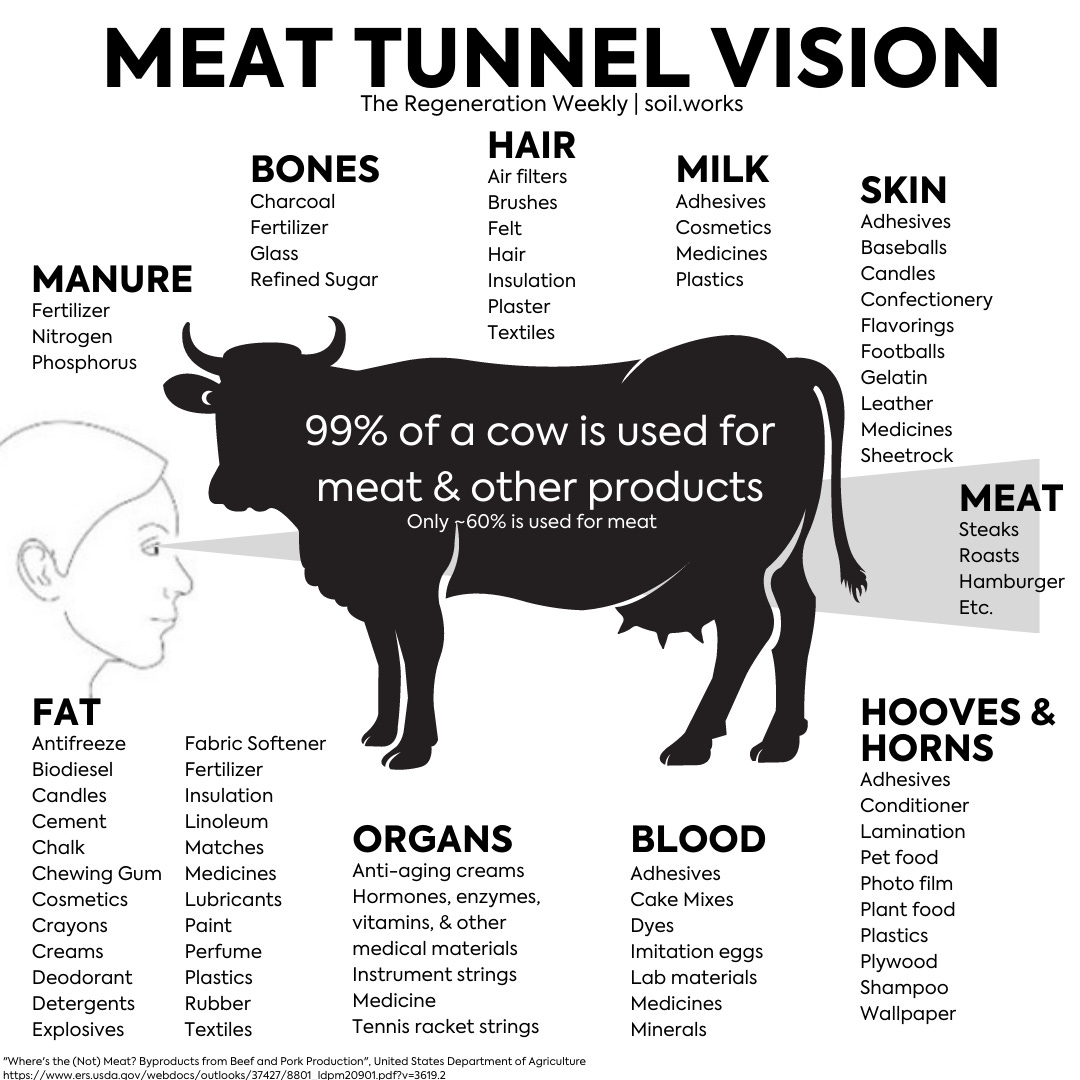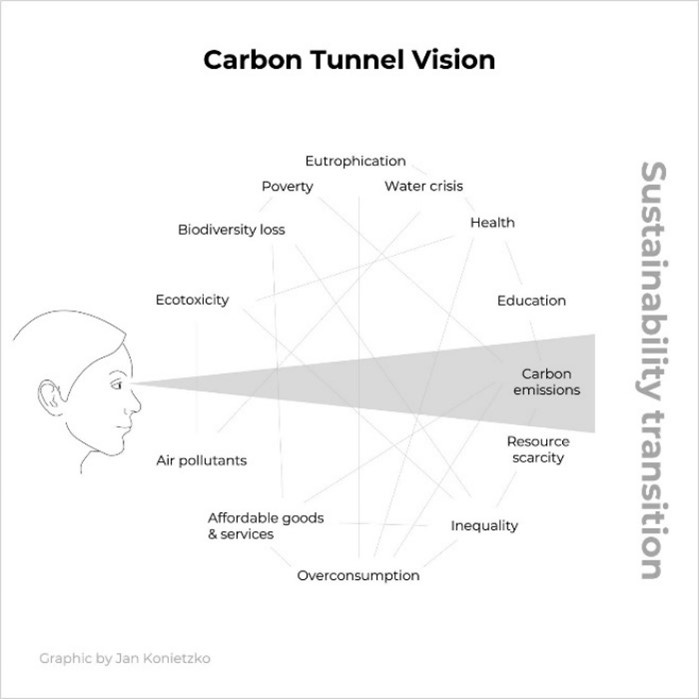Mooving Beyond Meat Tunnel Vision
Beef by-products are ubiquitous in our daily lives. Acknowledging this could aid in the adoption, scalability, and profitability of regenerative ranching.
What do MLB baseballs, NFL footballs, lipstick, refined sugar, and plywood have in common? They all contain a beef by-product.
From nose to tail, 99% of a cow is used for either meat or other products; however, only about 60% is used for meat.
Considering the many products of cattle reminds me of the recent meme circulating cautioning climate advocates against the trap of “Carbon Tunnel Vision.”
Coined by Dr. Jan Konietzko of Cognizant, carbon tunnel vision occurs when we focus too much on one aspect of sustainability (carbon) and ignore a wide spectrum of equally important environmental and social impacts, like biodiversity loss, land conversion, and gender equality.
Just as it’s important to be wary of carbon tunnel vision when discussing regenerative agriculture, it’s also important to avoid meat tunnel vision.
Cattle not only plays a crucial role in our agricultural system, aiding in land restoration and providing nutrient-dense meat but we likely use at least one item containing inedible beef by-products every day.
Soaps, lipsticks, face and hand creams, industrial oils and lubricants, detergents, and car tires are all produced with inedible fats from beef.
Papers, glues, fertilizers (yes, even those used on “vegan” plant foods), violin strings, and buttons are often produced from bones, horns, and hooves.
More than 100 individual drugs for safe childbirth, settling an upset stomach, preventing blood clots, managing anemia, and relieving asthma include beef by-products.
Insulin, used by more than 6 million of the 30 million diabetic people in the United States, is the best-known pharmaceutical derived from cattle.
Most of the material used for surgical sutures is from the intestines of cattle.
Beef isn’t just something for our plates.
It’s for our boots and shoes for work; it’s for our baseballs and footballs for play; it’s for our paint and upholstery for our home; it’s for our tires and asphalt for our roads; it’s for our medicines and equipment for our pharmacies and hospitals.
This is often missed when folks argue to eliminate animals from our food system.
Without these, we would be dependent upon even more synthetic substitutes from fossil fuels.
Cows might not be in your backyard. If you’re vegan, beef might not be on your plate. Odds are, though, beef by-products are an unsung hero in some aspects of your daily life.
When we discuss regenerative agriculture, we can’t only fixate on carbon.
When we discuss regenerative beef, we can’t only consider meat.
As consumers and investors in regenerative agriculture, the opportunities within cattle alone are abundant.
Advocating for carbon credits and premium-priced meat is a great start; however, looking outside the tunnel not only increases our opportunities for radical food system change and sustainability but also rallies together communities across industries, bolstering both the marketability and economics of regenerative ranching.
Making regenerative agriculture the most profitable way to farm, requires a holistic approach to amplify awareness of all tangible and intangible products from better food production and natural capital stewardship.
Which of the items listed above were you shocked to learn included a beef by-product?
Additional resources:
Where's the (Not) Meat? Byproducts From Beef and Pork Production
Beef cattle are a critical part of a sustainable food system by Sara Place
Moving beyond carbon tunnel vision with a sustainability data strategy
Disclaimer: The Regeneration Weekly receives no compensation or kickbacks for brand features - we are simply showcasing great new regenerative products.
If you have any products you would like to see featured, please respond to this newsletter or send an email to meg(at)soil.works
The Regeneration is brought to you by Wholesome Meats | Soilworks | Grassroots Carbon| Grazing Lands




The best Cow graphic I have ever seen. Educate the masses